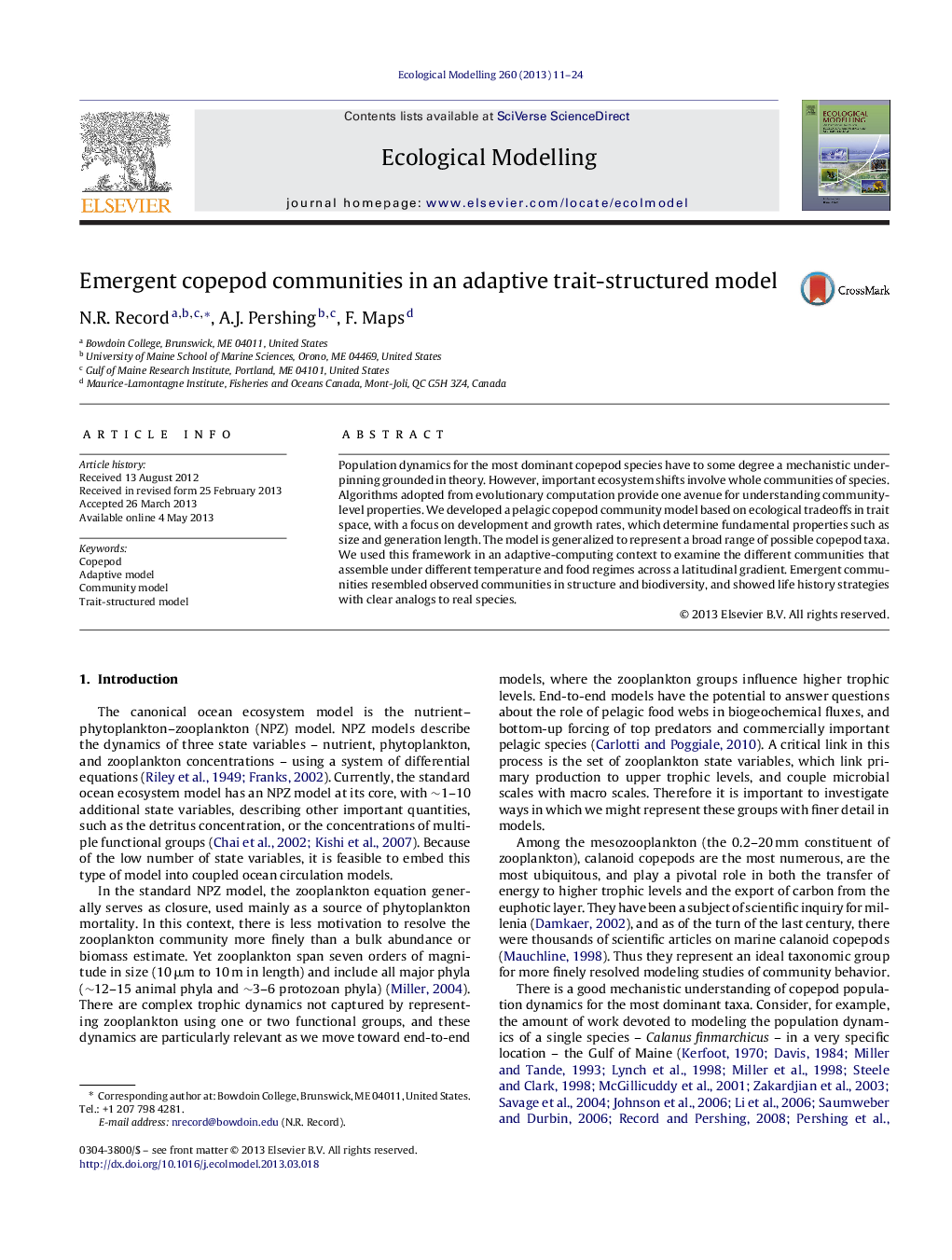| Article ID | Journal | Published Year | Pages | File Type |
|---|---|---|---|---|
| 4376070 | Ecological Modelling | 2013 | 14 Pages |
Abstract
Population dynamics for the most dominant copepod species have to some degree a mechanistic underpinning grounded in theory. However, important ecosystem shifts involve whole communities of species. Algorithms adopted from evolutionary computation provide one avenue for understanding community-level properties. We developed a pelagic copepod community model based on ecological tradeoffs in trait space, with a focus on development and growth rates, which determine fundamental properties such as size and generation length. The model is generalized to represent a broad range of possible copepod taxa. We used this framework in an adaptive-computing context to examine the different communities that assemble under different temperature and food regimes across a latitudinal gradient. Emergent communities resembled observed communities in structure and biodiversity, and showed life history strategies with clear analogs to real species.
Keywords
Related Topics
Life Sciences
Agricultural and Biological Sciences
Ecology, Evolution, Behavior and Systematics
Authors
N.R. Record, A.J. Pershing, F. Maps,
